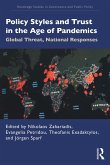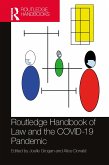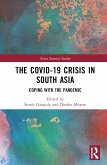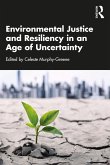This book explores the reasons behind the variation in national responses to the COVID-19 pandemic. In doing so, it furthers the policy studies scholarship through an examination of the effects of policy styles on national responses to the pandemic.
Despite governments being faced with the same threat, significant variation in national responses, frequently of contradictory nature, has been observed. Implications about responses inform a broader class of crises beyond this specific context. The authors argue that trust in government interacts with policy styles resulting in different responses and that the acute turbulence, uncertainty, and urgency of crises complicate the ability of policymakers to make sense of the problem. Finally, the book posits that unless there is high trust between society and the state, a decentralized response will likely be disastrous and concludes that while national responses to crises aim to save lives, they also serve to project political power and protect the status quo.
This text will be of key interest to scholars and students of public policy, public administration, political science, sociology, public health, and crisis management/disaster management studies.
Despite governments being faced with the same threat, significant variation in national responses, frequently of contradictory nature, has been observed. Implications about responses inform a broader class of crises beyond this specific context. The authors argue that trust in government interacts with policy styles resulting in different responses and that the acute turbulence, uncertainty, and urgency of crises complicate the ability of policymakers to make sense of the problem. Finally, the book posits that unless there is high trust between society and the state, a decentralized response will likely be disastrous and concludes that while national responses to crises aim to save lives, they also serve to project political power and protect the status quo.
This text will be of key interest to scholars and students of public policy, public administration, political science, sociology, public health, and crisis management/disaster management studies.
"The COVID pandemic has been in most ways disastrous, but it has fostered a wave of interesting social science studies about how individuals and societies have responded. This book is one of the more interesting and useful of the comparative accounts of governments facing the pandemic. With a wide array of cases, and a framework based on trust, this book provides numerous insights into the ways in which governments can respond to crisis."
B. Guy Peters, University of Pittsburgh, USA.
"Policy Styles and Trust in the Age of Pandemics provides forensic investigations of how ten governments responded to the COVID-19 crisis in the year 2020. Highly informative, the individual chapters are ideal for case study analysis in class. But their comparison is also leveraged to test hypotheses on policy styles during a crisis. It sheds novel light on the crucial role of trustworthy bureaucracies. The volume is a milestone in our understanding of governance, what to expect from policy responses to a fast-burning crisis and why we must build trust in bureaucracies."
Claudio M. Radaelli, School of Transnational Governance (EUI) and University College London, UK.
"Too often accounts of national responses to policy issues or governance problems focus on the same set of countries. This collection is genuinely international in drawing upon analysis from all corners of the world. For policy scholars and practitioners alike, this is an invaluable resource for understanding the reasons behind the diversity of governmental responses to a common problem."
Diane Stone, School of Transnational Governance, EUI, Italy.
B. Guy Peters, University of Pittsburgh, USA.
"Policy Styles and Trust in the Age of Pandemics provides forensic investigations of how ten governments responded to the COVID-19 crisis in the year 2020. Highly informative, the individual chapters are ideal for case study analysis in class. But their comparison is also leveraged to test hypotheses on policy styles during a crisis. It sheds novel light on the crucial role of trustworthy bureaucracies. The volume is a milestone in our understanding of governance, what to expect from policy responses to a fast-burning crisis and why we must build trust in bureaucracies."
Claudio M. Radaelli, School of Transnational Governance (EUI) and University College London, UK.
"Too often accounts of national responses to policy issues or governance problems focus on the same set of countries. This collection is genuinely international in drawing upon analysis from all corners of the world. For policy scholars and practitioners alike, this is an invaluable resource for understanding the reasons behind the diversity of governmental responses to a common problem."
Diane Stone, School of Transnational Governance, EUI, Italy.








